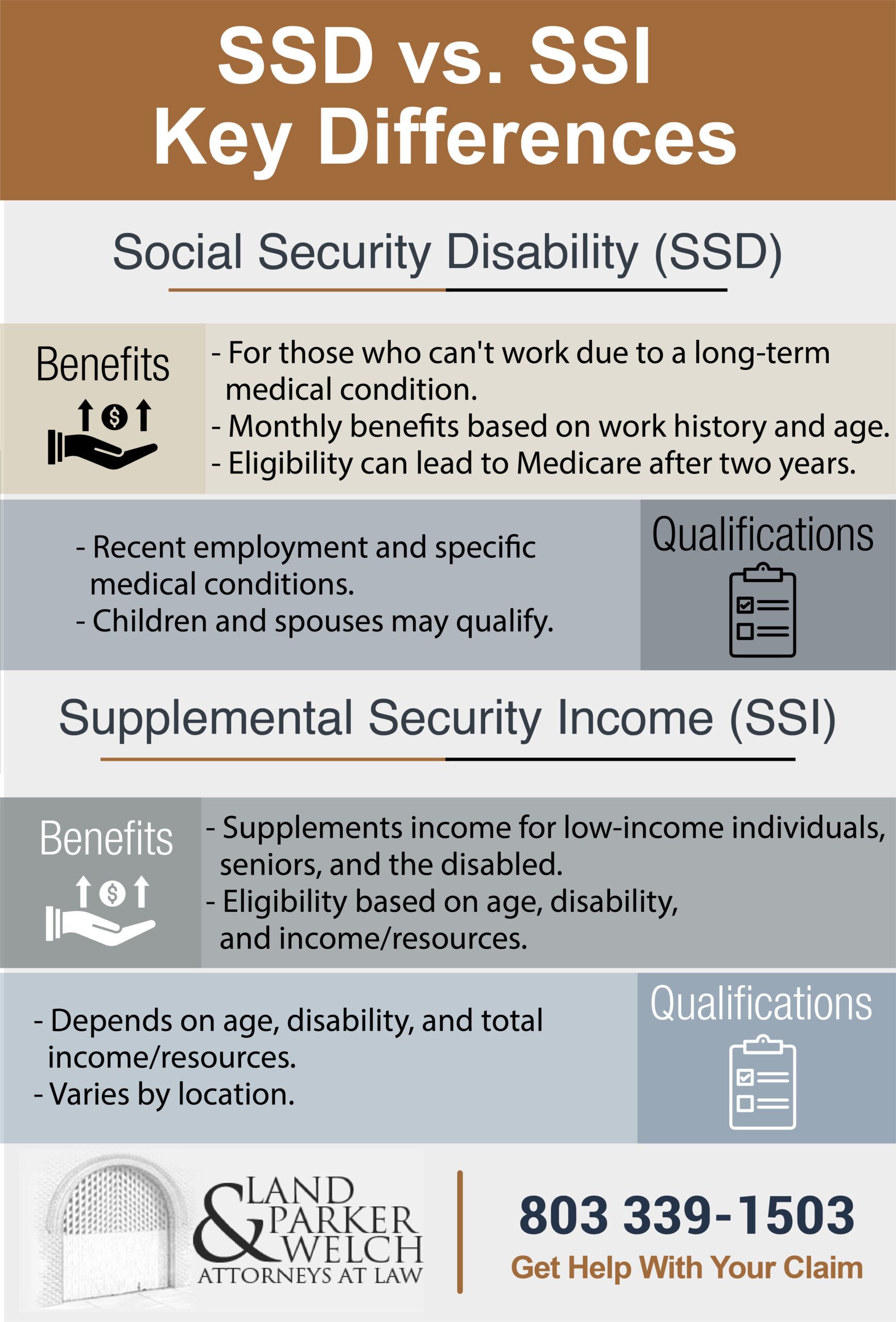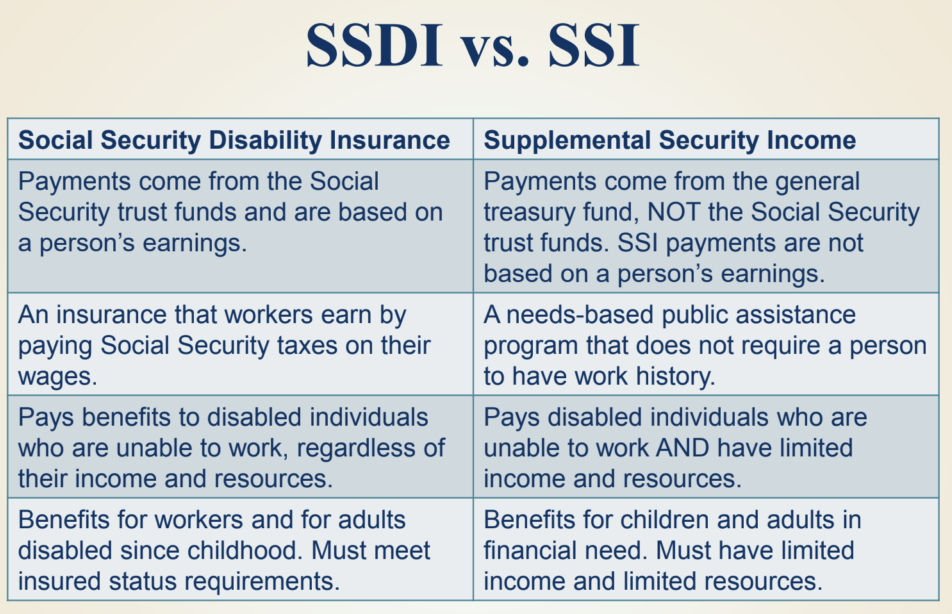Supplemental Security Income (SSI) is for low-income individuals, while Social Security Disability (SSD) is for those with work history. SSI is needs-based financial aid, and SSD is based on work credits earned through employment.
SSI is for disabled individuals without sufficient work history, while SSD is for those who have paid into the Social Security system. Both programs provide financial assistance to individuals with disabilities, but the eligibility criteria and funding sources differ. Understanding the distinctions between SSI and SSD can help individuals navigate the complex landscape of Social Security benefits and access the support they need.
By knowing the key differences, individuals can make informed decisions about which program best suits their circumstances and apply for the appropriate benefits.
Credit: www.quora.com
What Is Ssi?
Welcome to our blog post about the differences between SSI and SSD! In this section, we’ll dive into the specifics of SSI (Supplemental Security Income) and discuss its definition and characteristics.
Definition
SSI, also known as Supplemental Security Income, is a federal income supplement program funded by general tax revenues. It is designed to help aged, blind, and disabled people who have little to no income by providing cash to meet basic needs for food, clothing, and shelter. The program is managed by the Social Security Administration (SSA) and is not based on prior work credits.
Characteristics
- Eligibility: SSI eligibility is based on financial need and is determined by income, resources, and living situation. Applicants must have limited income and resources to qualify for SSI benefits.
- Benefit Amount: The monthly payment amounts for SSI recipients are adjusted annually based on changes in the cost of living. The benefit amount can also vary by state due to differences in living expenses.
- Medical Conditions: Individuals must have a disability, be blind, or be 65 years or older to qualify for SSI benefits. The program evaluates the severity and duration of an individual’s disability to determine eligibility.

Credit: www.lpwlawfirm.com
What Is Ssd?
What is SSD?
Definition
Solid State Drive (SSD) is a type of storage device that uses flash memory to store data, unlike traditional hard disk drives which use spinning disks.
Characteristics
- SSDs are faster than HDDs due to the lack of moving parts.
- They are more durable and reliable as they are less prone to physical damage.
- SSDs consume less power and produce less heat compared to HDDs.
Differences Between Ssi And Ssd
Exploring the differences between SSI and SSD can help users make informed decisions about their storage needs.
Storage Technology
SSI uses Serial Storage Architecture, whereas SSD utilizes Flash Storage technology, providing varying storage mechanisms.
Speed And Performance
SSI offers fast data processing due to its efficient architecture, while SSD excels in speed with rapid read/write operations.
Reliability And Durability
SSI is known for reliability but lacks durability compared to the robust SSD with its sturdy design and low failure rates.
Credit: www.quora.com
Frequently Asked Questions Of What Is The Difference Between Ssi And Ssd
What Is The Difference Between Ssd And Ssi?
SSD (Solid State Drive) is a type of storage device that uses flash memory to store data, providing faster access times and improved performance. On the other hand, SSI (Server Side Includes) is a web server feature that allows you to include content from other files into a web page.
While both increase efficiency, SSD focuses on storage speed, while SSI enhances webpage functionality.
How Does An Ssd Differ From A Traditional Hard Drive?
Unlike traditional hard drives that use spinning magnetic disks, SSDs utilize flash memory to store data. This results in faster read and write speeds, increased durability, lower power consumption, and quieter operation. Additionally, SSDs have no moving parts, making them more resistant to shock and vibration, offering enhanced reliability and longevity.
Can I Replace My Hdd With An Ssd?
Absolutely! In fact, many people upgrade their computers by replacing their HDD with an SSD. By doing so, you can experience significant performance improvements, such as faster boot times, quicker application loading, and improved overall responsiveness. However, it’s important to ensure that your computer is compatible with the SSD interface (e.
g. , SATA or NVMe) before making the switch.
Are Ssds More Expensive Than Hdds?
Yes, SSDs are generally more expensive per gigabyte compared to HDDs. However, the price gap has been narrowing over the years as SSD technology advances. The benefits of faster performance and increased reliability often outweigh the cost difference, making SSDs a worthwhile investment for those seeking improved computing experiences.
Conclusion
Understanding the difference between SSI and SSD is crucial for those seeking financial assistance due to a disability. Both provide support, but eligibility and application processes differ. By having clarity on these distinctions, individuals can make informed decisions and navigate the system more effectively.
Stay informed to access the support you need.


0 comments